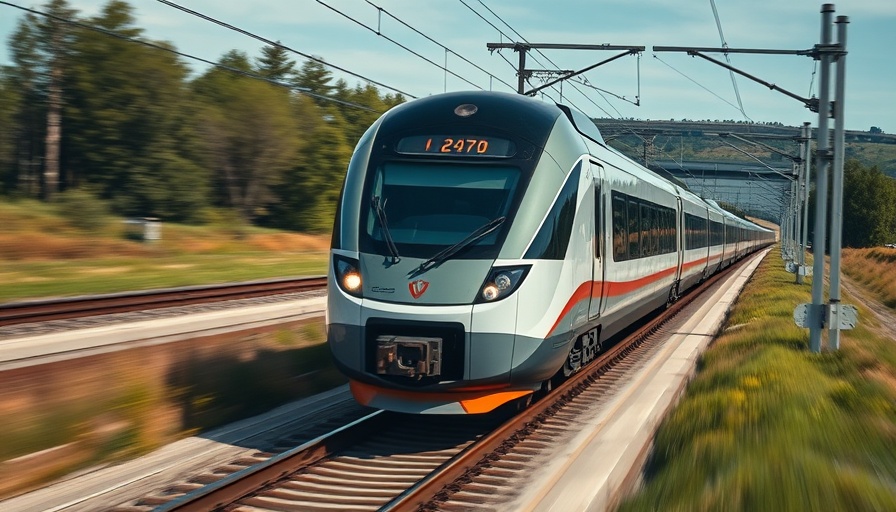
Eurostar's Move Towards Greener Travel
As the demand for sustainable travel options increases, Eurostar is set to expand its services to Frankfurt and Geneva. This strategic move highlights a growing trend among travelers seeking greener alternatives in the wake of rising environmental awareness. Offering a rail connection between major cities not only reduces carbon emissions compared to flights but also caters to a market increasingly focused on sustainability.
Why Frankfurt and Geneva?
Both cities are flagships in business, finance, and culture, with Frankfurt serving as Germany's financial hub and Geneva known for its international organizations and diplomatic significance. The decision to connect these cities via Eurostar reflects not only an understanding of the changing travel landscape but also the needs of both leisure and business travelers. By enhancing its routes, Eurostar taps into the competitive landscape of European transportation, where trains can offer faster, more efficient journeys compared to air travel.
The Push for Sustainable Travel Options
Sustainability is not just a trend; it's a vital ethos for the future of travel. The switch from air to rail can significantly lower the carbon footprint of a journey—trains producing far less CO2 per passenger. This is consistent with global efforts to combat climate change, and companies like Eurostar recognize the importance of aligning business models with today's eco-conscious consumers.
The Economic Impact
With more travelers seeking environmentally friendly options, Eurostar's expansion could lead to increased business revenue and job creation within the regions connected by its services. The potential for boosted economic activity in cities like Frankfurt and Geneva means that greater accessibility can enhance tourism and business exchanges, benefiting local economies and fostering international partnerships.
A Broader Look at Travel Trends
Eurostar's initiative is just one part of a larger shift in the transportation industry. Companies worldwide are evaluating their carbon footprints and transforming their operations to meet growing demands for sustainability. As the Bay Area and beyond adapt to these changes, we can expect to see shifts in corporate practices, such as investment in sustainable technologies and partnerships focused on reducing environmental impacts in business travel.
Travel and Business Synergy in the Bay Area
For business leaders and entrepreneurs in the Bay Area, keeping up with travel trends is crucial. Sustainable travel not only reflects corporate responsibility but may also present new opportunities for partnerships and investment. Understanding these trends offers insights that can inform business growth strategies while addressing the need for corporate social responsibility.
Conclusion: The Future of Travel Seems Green
As Eurostar justifies its expansion plans, it sparks a conversation about the future of travel—one that is in harmony with environmental considerations. By taking advantage of modern travel trends and fostering a culture of sustainability, travelers and businesses alike can navigate towards a greener future. The spotlight now falls on how each of us can adapt our personal and professional travel habits to fit this evolving landscape.
 Add Row
Add Row  Add
Add 



Write A Comment